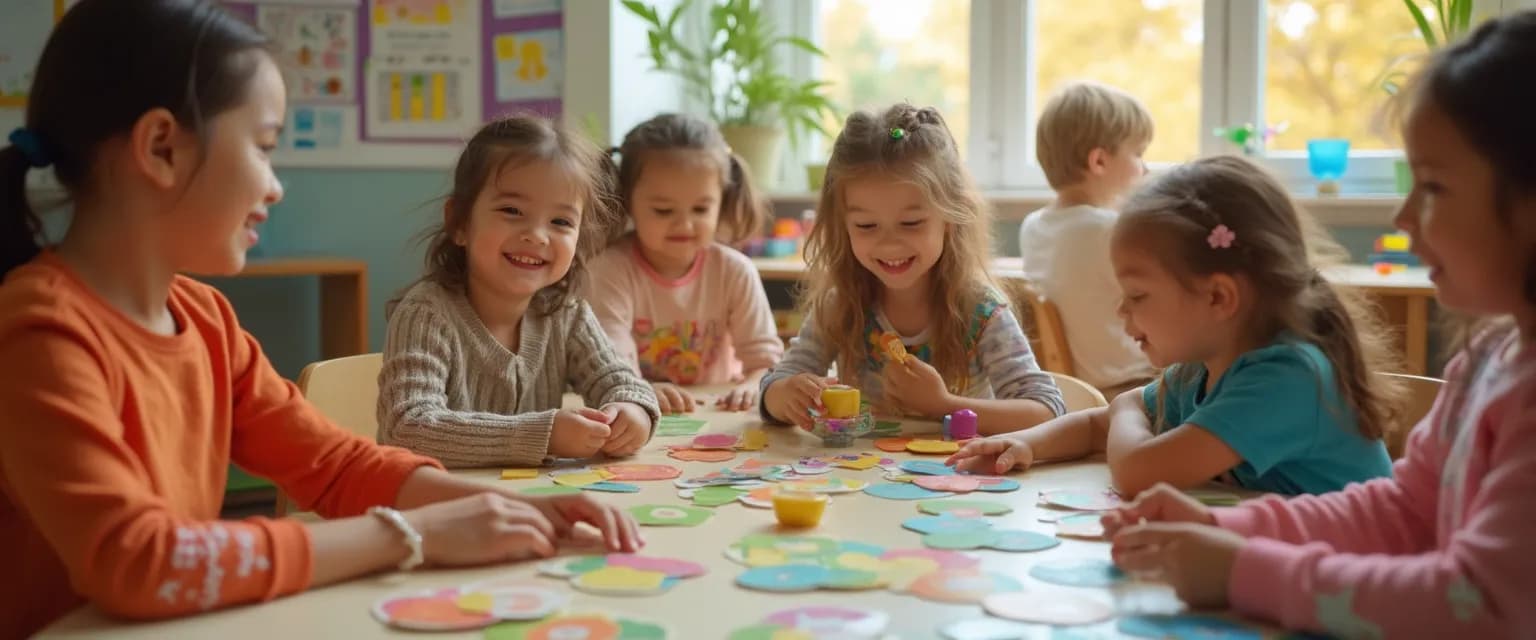5 Playful Games That Boost Self-Awareness in Preschoolers Today
Nurturing self-awareness in preschoolers is like planting tiny seeds that blossom into emotional intelligence. These early years (ages 3-5) represent a golden window when children begin recognizing themselves as unique individuals with distinct thoughts, feelings, and abilities. Through playful activities, little ones naturally develop this crucial life skill without even realizing they're learning something profound. The five quick games we're about to explore require minimal supplies and just 5-10 minutes of your time, making them perfect for busy parents and teachers who want to boost their preschoolers' emotional development through fun rather than formal lessons.
When children develop strong self-awareness in preschoolers, they gain valuable tools for navigating social interactions, understanding their emotions, and building confidence that will serve them throughout life. These playful activities create natural opportunities for self-discovery while keeping young minds engaged and excited about learning.
Why Self-Awareness in Preschoolers Matters for Development
Self-awareness in preschoolers forms the cornerstone of emotional intelligence. When young children recognize their own feelings, preferences, and abilities, they develop the foundation for empathy, self-regulation, and healthy social connections. Research consistently shows that preschoolers with stronger self-awareness tend to transition more smoothly to kindergarten and demonstrate better academic readiness.
During ages 3-5, children's brains are particularly receptive to developing these skills. Their neural pathways are rapidly forming connections that will shape how they understand themselves and others for years to come. This developmental window makes preschool the perfect time to introduce self-expression activities that feel like play rather than lessons.
The benefits extend far beyond early childhood. Preschoolers who develop strong self-awareness typically show:
- Better emotional regulation when facing challenges
- Improved ability to articulate their needs and feelings
- Greater confidence in social situations
- Enhanced problem-solving skills
By integrating simple self-awareness games into daily routines, parents and teachers provide children with emotional vocabulary and recognition skills that serve as building blocks for lifelong emotional health.
5 Quick Games to Develop Self-Awareness in Preschoolers
1. Emotion Mirror
This simple activity requires just a small mirror and 5 minutes. Have preschoolers make different facial expressions—happy, sad, surprised, frustrated—while looking at themselves. Ask questions like "What does your face look like when you're excited?" This helps children connect internal feelings with external expressions, a fundamental aspect of self-awareness in preschoolers.
2. Body Freeze Dance
Play music and encourage children to dance freely. When the music stops, call out a feeling like "tired" or "energetic," and have them freeze their bodies to show that feeling. This game builds body awareness techniques and helps preschoolers recognize physical sensations associated with different emotional states.
3. Like/Dislike Sorting
Create two simple containers labeled with happy and sad faces. Provide pictures of various foods, activities, or toys, and have children sort them according to their preferences. This activity helps preschoolers identify personal likes and dislikes—a key component of developing self-awareness in preschoolers.
4. Strength Spotting
Throughout the day, notice and name specific abilities you observe: "You were really patient while waiting your turn" or "You used such creative colors in your drawing." Encourage children to spot their own strengths too. This builds positive self-awareness and confidence.
5. Feelings Detective
Using simple picture books or photos, play detective by identifying how characters might be feeling based on facial expressions and situations. Then connect to personal experiences: "Remember when you felt excited about the playground? How did your body feel then?" This game strengthens emotional recognition skills through storytelling.
Integrating Self-Awareness in Preschoolers' Daily Routines
The magic of these games lies in their flexibility—they can be woven seamlessly into everyday moments rather than requiring special "teaching time." During morning routines, ask "How is your body feeling today?" Before transitions, try a quick emotion mirror check-in. These small moments build consistent awareness practice.
Watch for signs that your preschooler's self-awareness is developing: using feeling words unprompted, noticing others' emotions, or expressing preferences more clearly. Celebrate these moments as important milestones in their emotional development journey.
Remember that developing self-awareness in preschoolers happens gradually through consistent, playful practice. These five games provide a starting point, but the most powerful learning happens when emotional awareness becomes part of everyday conversations. By making self-awareness a natural, ongoing discussion rather than isolated lessons, you're helping your preschooler build emotional intelligence that will benefit them throughout life.




